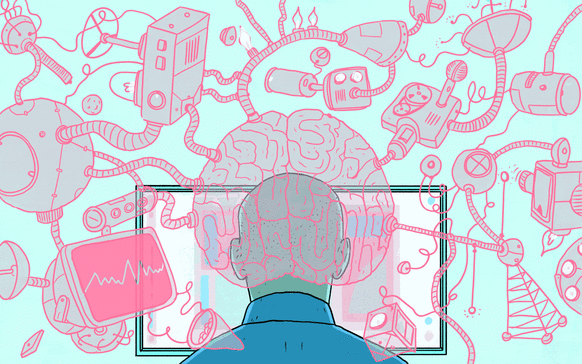As a recruiter, wouldn’t it be great to read the mind of a candidate and know just what would convince them to accept your employment offer? We at Indigo Recruitment Agency may not have that superpower, but we are interested in this issue. This is why we’ve decided to ask an expert to explain it.
There are four main factors that recruiters must take into account when making an offer: result, motivation, previous experience, and working environment conditions. We’ll talk about them in greater detail below.
It is worth noting that in reality, physiological terms can be complicated, long, and overly sophisticated for a general understanding of these principles. So we asked the expert to explain the process of decision-making with simple words.
“Draw” a bright picture
“Decisions can’t be made in a vacuum. We always make them by choosing between two or more options, ” says Ekaterina. “The most important thing when making a decision, particularly the one related to a new job, is a clear image of the consequences of the choice and its several alternatives. In neurophysiology, it is called the ‘acceptor of actions results. ’ In simple terms, our brain creates a certain model of consequences for decisions. And in order to start this process, the image has to be quite clear. ” If this doesn’t happen, our brain doesn’t understand the basis for decision making. And conversely, the more concrete and colorful the image, the easier it becomes for your candidate to say “yes. ”
This means that your job offer has to be as clear, structured, and detailed as possible. “It is important to make the candidate understand what your project is about, as well as explain the conditions both in the job description and during conversations on the phone and during the job interview, ” says the expert. “At the same time, the number of details depends on the person: for some, a rather broad description works fine, while others need details. ” Since you don’t know beforehand who you will work with, make sure you have enough details, as it is likely that you will need to sell the vacancy exactly to the latter type of person.
Consider motivation

“Human motivation builds upon two elements: values and needs. We base every decision on its capability to satisfy both, ” says Ekaterina Gayduchenko.
For instance, if a person values development, he or she will look exactly for that term in job offers. Therefore, it is best to highlight what a person can learn about the position in your offer. If they need stability and your startup is rather unpredictable, we wish you luck in navigating how to frame the position for this type of prospective employee.
Ask about experience
The third component that influences the decision is the candidate’s past work experience. “When you make an offer, your candidate compares it to the one that they had in their experience: whether they have faced this type of tasks and similar situations, ” comments the expert. “If they can match their experience with your offer, it will positively influence their decision, and, if they cannot, it will play against the new offer. ”
Create a comfortable environment

“The surroundings of the person who is making the decision are also important, so try your best to make the surroundings conducive to a positive answer”, suggests the expert. This includes a comfortable, well-lit and well-conditioned office, tasty coffee, as well as the mood you’re in while talking to the person. “The internal state of the person is as important as their external state, but this is well out of your influence, ” says Ekaterina.
“Our brain analyzes all these factors and contemplates the alternatives — this is how it is explained in neurophysiological literature, ” explains the expert. When we are talking about hunting, if the candidate already has a job but you offer them a new one, the choice will be between the two alternatives: to accept the new offer or to stay in their current position. If the candidate is actively searching for a job, they compare multiple alternatives, which is to say all the vacancies they are considering.
“The brain compares what benefits more, not only in financial terms, but in other aspects. The main criteria for the selection is where the maximum values and needs are satisfied with the minimum loss. ” According to the expert, this is the “formula” of decision making when receiving an offer. For example, if the brain foresees that there won’t be many benefits but may well be a great loss, your offer will be declined. Ekaterina emphasizes that the loss can stand for many different issues, such as a decrease in salary and an increase in the amount of effort.

“When we are calm, our brain consumes 20% of the energy of our body. But when we are actively thinking or trying to solve a task, this number increases to 25%. This is a lot, ” says the expert. “And if it can avoid making a decision, it will definitely do so. It does everything to save resources, as they all are very costly. ”
There are also other aspects that influence the decision. For instance, it can be a so-called trigger, or an internal or external factor provoking the decision. It can be candidate’s beliefs. “These issues are too subtle, and it is not easy to influence them in the frame of recruitment. However, one should keep them in mind, ” says Ekaterina.
But it is enough work even with the remaining four elements. Remember them. Help the candidate and their brain see that particular thing in your offer that they can’t resist.
Written by: Katya Mayevskaya








 Success!
Success! 